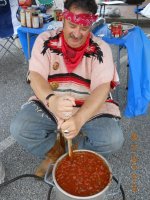bluetopper
Member
When we bought this house it had a wood burning fireplace insert in the fireplace with a fan. It looked ancient, big, and ugly so after a dozen years I took it out. Well lo and behold behind the insert was a natural gas pipe. And the valve I discovered was under a very slight bump in the wall I had never paid any attention to. I rigged it up to be vented gas with ceramic logs and we have really enjoyed it the last few years. I am however thinking of making it unvented as it seems 90% of the heat goes up the chimney. Is unvented better?
A few nights ago here in northeast Texas it got down to -5. The coldest I've ever experienced in my 58 years.
A few nights ago here in northeast Texas it got down to -5. The coldest I've ever experienced in my 58 years.
Last edited:



